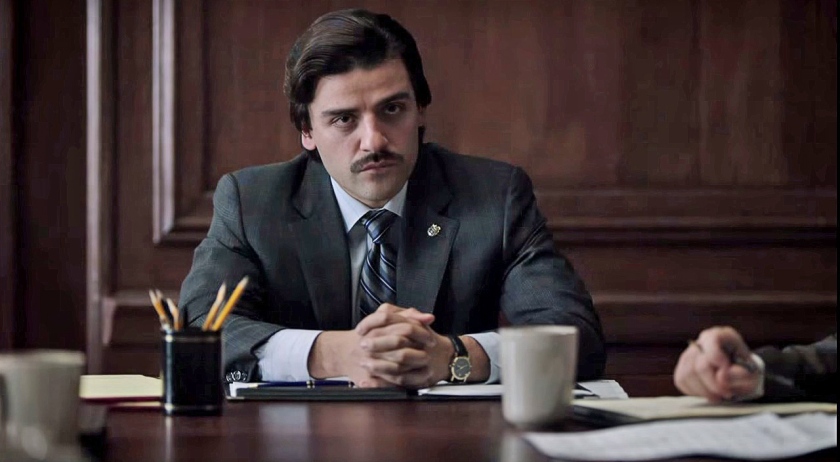Like I say every year, there is simply too much great TV. It’s a fact. Even TV network executives have noted how it is near-impossible to keep up with all the latest critically-acclaimed content that fills our screens, especially with the deluge of output from companies like Amazon and Netflix that now produce their own shows.
There also isn’t enough time to give each show its own post, so these are the rest of the best shows and episodes I watched in 2015 (in addition to the BBC adaptations and Fargo).
BETTER CALL SAUL – ‘FIVE-O’/’PIMENTO’

Better Call Saul is on track to equal or even surpass the show it spun-off from. It’s quite a bold claim, I know – Breaking Bad was a critical juggernaut that became one of the most adored and acclaimed shows of the 21st century – but with episodes as intense and emotional as ‘Five-O’ and ‘Pimento’, BCS proves that it can easily match or outdo its predecessor.
The two shows are quite different, despite sharing some of the same DNA and two main characters. Saul is a much slower show, more interested in character building and dialogue than shootouts in the desert or moments of explosive violence, though it’s certainly capable of creating tense Bad-esque action scenes when it wants to.
It also retains the previous series’ methodical storytelling, where everything each character does makes logical and emotional sense, it’s always clear how their actions follow on from what’s happened previously and how these actions then build up to unexpected moments of shocking drama, followed by episodes that examine the fallout of these events before moving onto the next big dramatic moment. In BB, these big moments were often gunfights or a death or Walt doing something horrible. In Saul, these climactic moments occur in the form of a monologue or an emotionally-charged conversation that hits just as hard as any bit of violence from That Other Show.
The series features Jimmy McGill, a criminal lawyer – but not yet the criminal lawyer Saul Goodman that we know he becomes – struggling to kick-start his career, deal with his old law firm and help his brother Chuck, who has a strange medical condition that leaves him housebound and painfully averse to electricity and sunlight. He occasionally crosses paths with parking attendant/former cop/future Walt babysitter Mike Ehrmentraut, who exists mainly on the sidelines of BCS except for his his award-worthy showcase in ‘Five-O’.
The writers resist the urge to shoehorn too many blatant references to That Other Show into Better Call Saul and every one they do slip in naturally fits into Jimmy and Mike’s story.
The show retains BB’s stellar cinematography and dry humour and turns a character who was mostly played for comic relief into a fully fleshed-out person who is unknowingly heading for a fall, which gives Better Call Saul a tragic undercurrent that bubbles under its comedic exterior. Every happy scene with his ex Kim and brother Chuck are tinged with sadness as neither are mentioned in Breaking Bad and we are left to imagine why, which brings many horrible possibilities to mind.
SHOW ME A HERO – ALL 6 EPISODES.

A miniseries about a city council struggling with a federal court ruling to implement new public housing may not sound like gripping, must-see TV. But Show Me A Hero turns this premise into a powerful and moving examination of racism, political greed and class warfare in late 80’s New York. It’s impossible to pick a standout episode as they work perfectly together to make an unforgettable drama based on real events that deals with issues that are still relevant to modern-day America.
The series was created by David Simon and is anchored by an incredible performance from Oscar Isaac as ambitious politician Nick Wasicsko, who runs for Mayor of Yonkers and promises to oppose the court’s ruling if elected but has a change of heart and spends his term as Mayor fighting to get the houses built, battling against rival politicians and a huge public outcry from angry voters who feel that he betrayed them.
In chaotic city hall meetings, he faces a determined mob of citizens who are furious that their white and wealthy middle-class neighbourhoods would have affordable housing that lets people from the poorest parts of the city move in next door to them. They complain that this would lower their property values and bring in crime and drugs and they just don’t want to live next to minorities poor people. After these meetings, Mayor Wasicsko is demoralised and despairing, and who could blame him. This will not be an easy process.
Half of the series follows this surprisingly-intense political battle while the other focuses on some of the people that the desegregation would help, like Norma (LaTonya Richard-Jackson), who’s losing her sight and needs a carer, and Billie (Dominique Fishback) who falls for a drug dealer, and Carmen (Ilfenesh Hadera) who has emigrated to the USA looking for a better place to raise her children.
Scenes with these characters are often quietly devastating and make the dehumanising rhetoric of the racist concerned protestors sting even more. The excellent cast also features Alfred Molina, who is tremendously punchable as smug, slimy conservative Hank Spallone, and Jon Bernthal as one of Nick’s few allies, civil rights attorney Michael Sussman.
In short: It’s as good as you’d expect a show from the creator of The Wire to be.
Continue reading “2015’s Top TV: A (very, very late) final round-up”